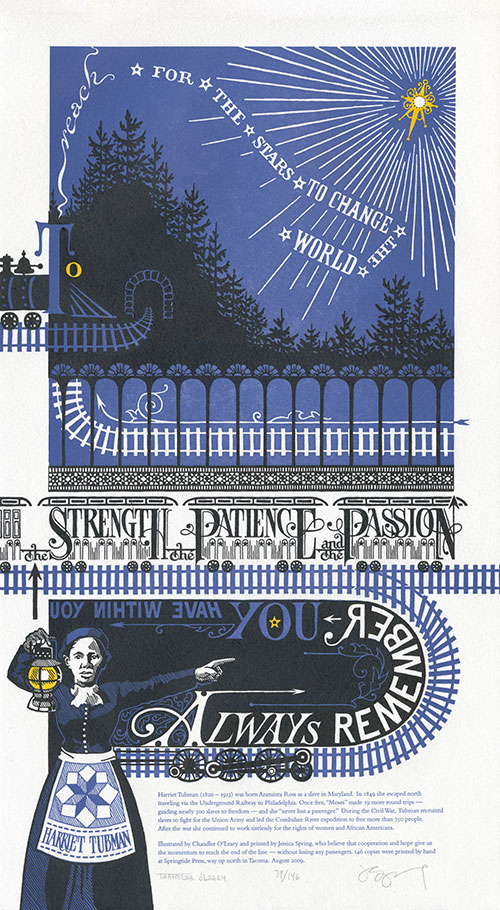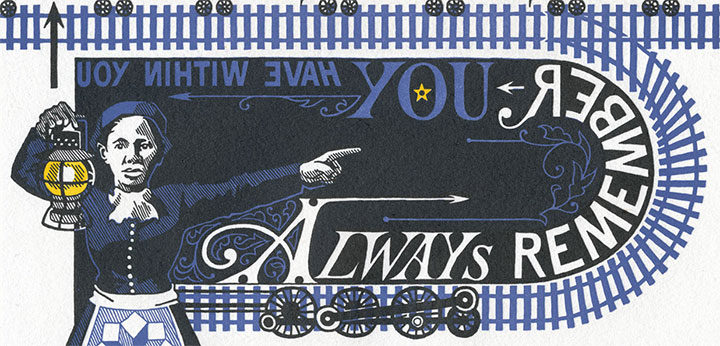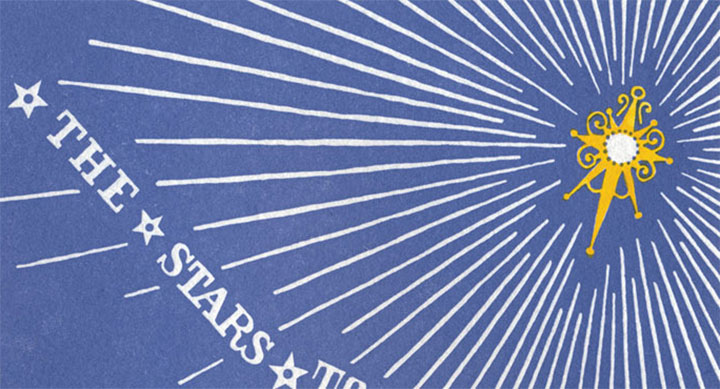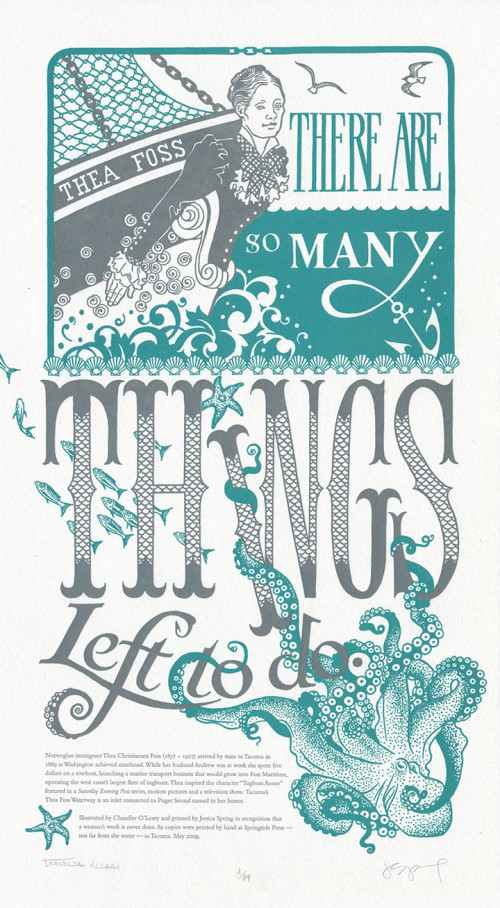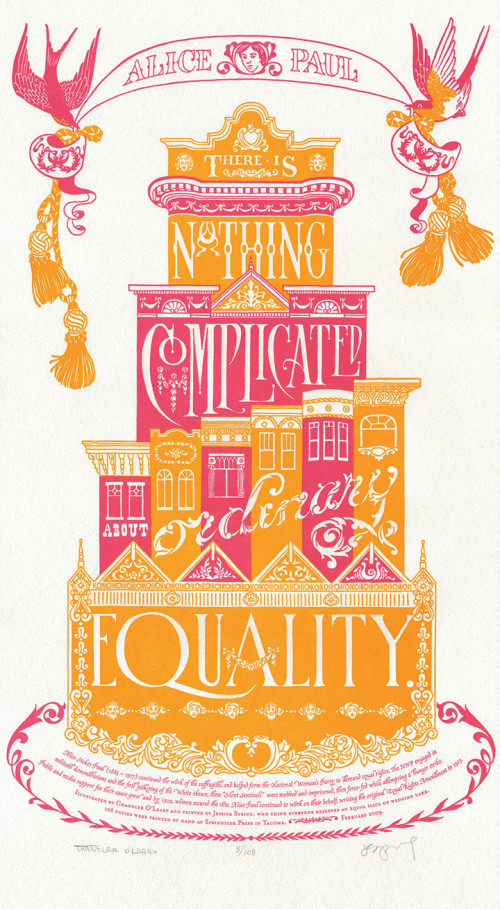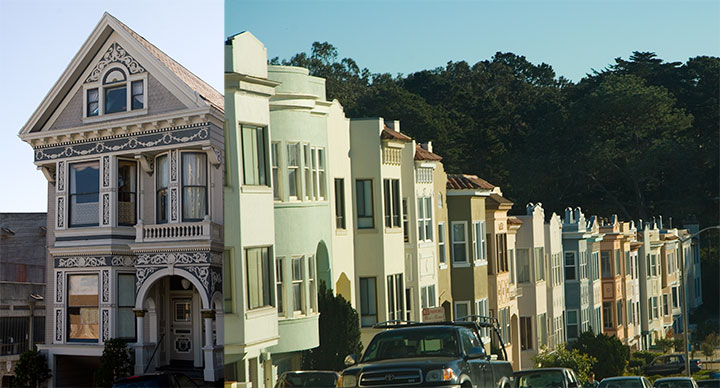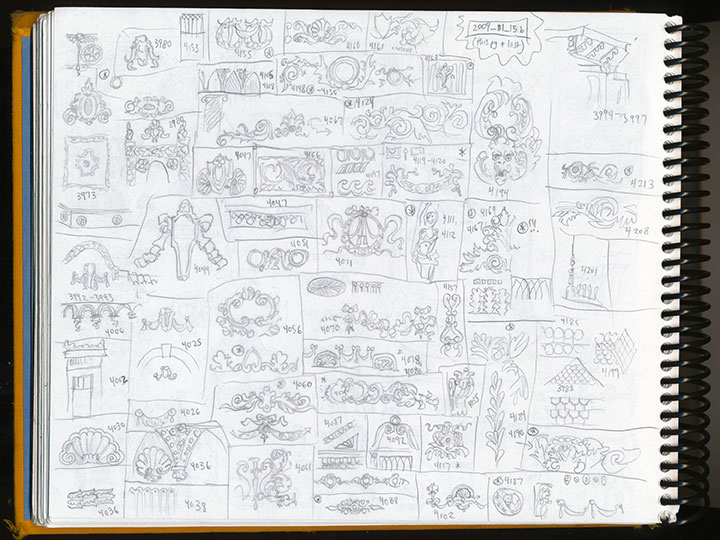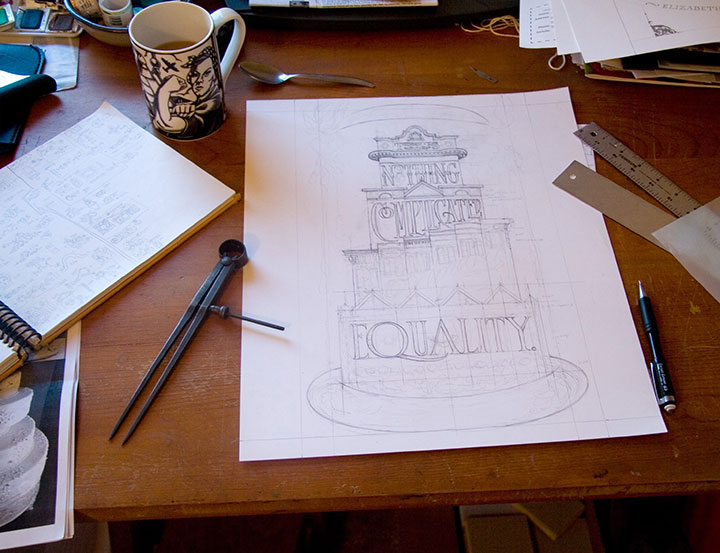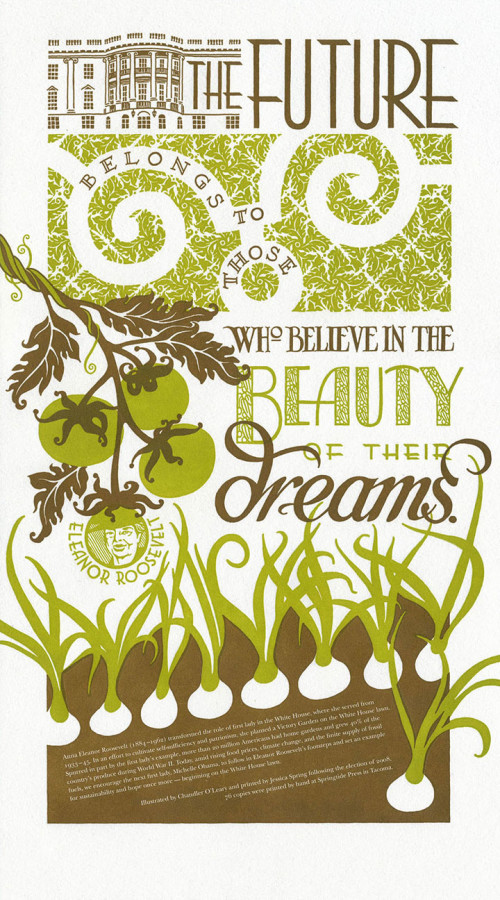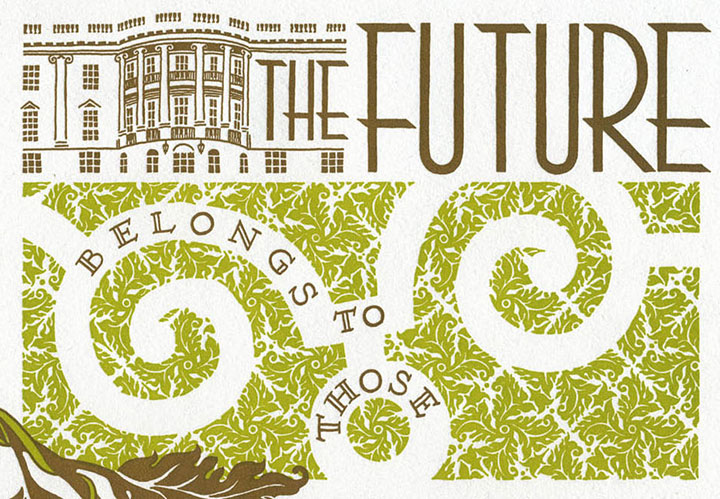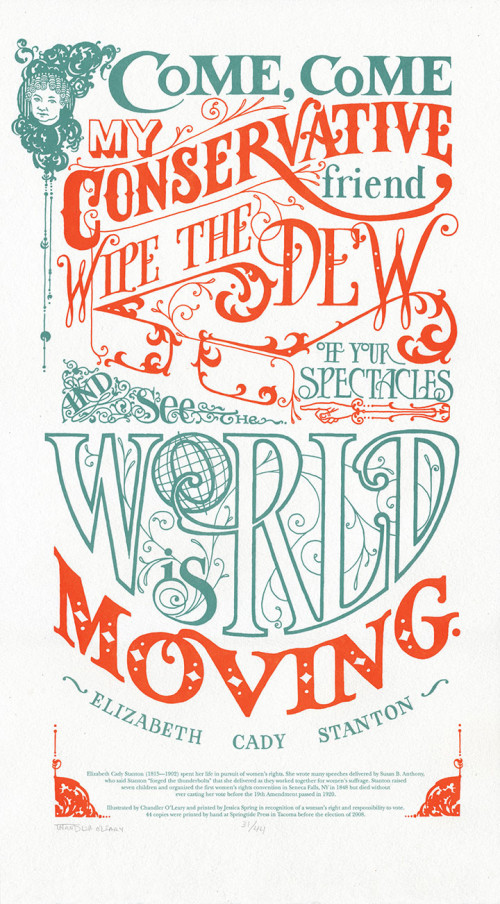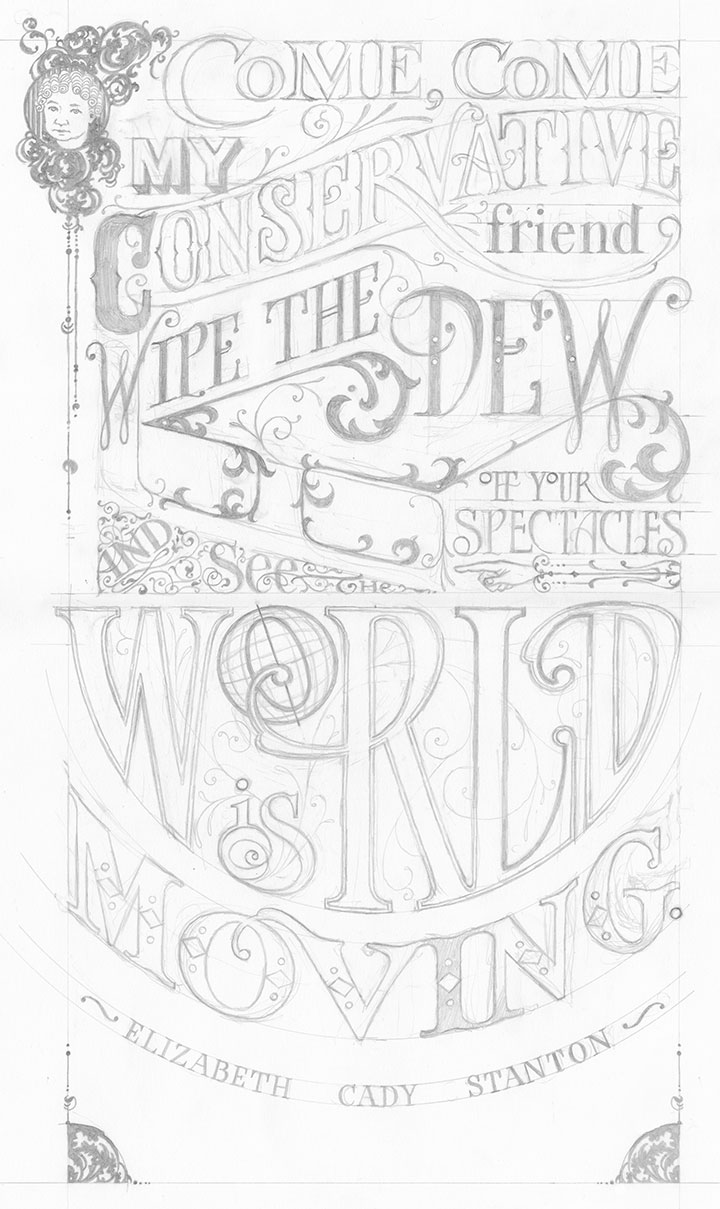For nearly a year now, the Dead Feminists series has given us an outlet for both our aspirations and frustrations. For every social and political victory, there follows a reminder of how divided we are as a culture. We were so proud to see Victory Garden become a part of a nation-wide movement toward sustainability—but a movement and a majority are not the same thing. We are delighted whenever a customer tells us that Prop Cake is meant for a wedding gift—but are heartbroken by the reminder that for many people, the gesture can only be symbolic. Yet through it all we remain optimistic that art can make a difference—that a bright future is out there, somewhere, and that we can help find the way to it.
Always remember you have within you the strength, the patience and the passion to reach for the stars to change the world.
— Harriet Tubman
This is why we chose Harriet Tubman for our latest piece. There are so many pressing issues vying for our attention—war, the economy, healthcare, the environment, transit, equality, etc.—that we couldn’t choose just one. So we decided to focus on the journey itself. For all the ground we’ve gained in our country’s short history, we have a long, long way to go—and the only way we’ll get there is together. Harriet Tubman knew that when she fought for freedom and civil rights, and she devoted her entire life to the idea.
So here, submitted for your approval, is End of the Line. As always, everything—from the illustrated lettering to the letterpress printing—is done completely by hand. This time, though, we’re asking you to flex your reading muscles a bit: to symbolize the difficult journey faced by anyone with a great task, we made it somewhat of a challenge to read.
Don’t worry, though—Harriet is there to guide you. Just follow her lantern, and you’ll find the right path. If you lose your way, just look for the Drinkin’ Gourd.
• • • • • • • • • • • • • • • • • • • • • • • • • • • • • • • • • • • • • • • • • • • • • • • • • • • • • • • •
End of the Line: No. 5 in the Dead Feminists series
Edition size: 146
Poster size: 10 x 18 inches
Printed on an antique Vandercook Universal One press and hand-colored with watercolor. Each piece is printed on archival, 100% rag, recycled paper, and signed by both artists.
Colophon:
Harriet Tubman (1820 – 1913) was born Araminta Ross as a slave in Maryland. In 1849 she escaped north traveling via the Underground Railway to Philadelphia. Once free, “Moses” made 19 more round trips—guiding nearly 300 slaves to freedom—and she “never lost a passenger.” During the Civil War, Tubman recruited slaves to fight for the Union Army and led the Combahee River expedition to free more than 750 people. After the war she continued to work tirelessly for the rights of women and African Americans.
Illustrated by Chandler O’Leary and printed by Jessica Spring, who believe that cooperation and hope give us the momentum to reach the end of the line—without losing any passengers.
UPDATE: poster is sold out. Reproduction postcards available in the shop!
